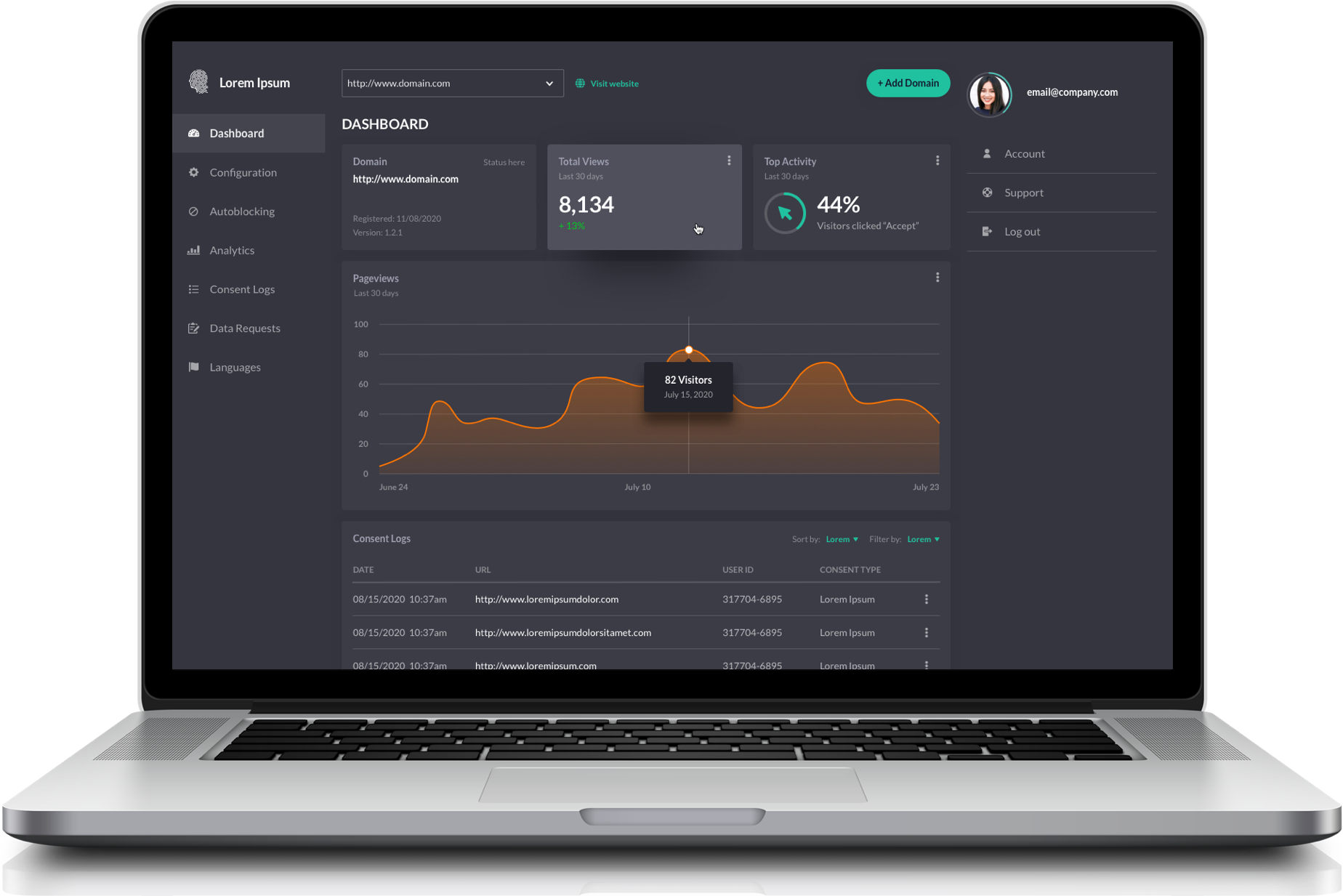Simple Cookie Compliance solution for your business.
Protect your business and take a proactive approach to data privacy laws with Cookie Compliance™. Build trust by giving your website visitors a beautiful, multi-level consent experience that complies with the latest cookie regulations in 100+ countries.
The world’s most popular cookie notice, now available as a fully featured Consent Management Platform.
235,000
Active Users
Remove dark patterns and deploy consent banner without any guesswork
Default configurations for GDPR, CCPA and more help to remove dark patterns and allow for quick and easy deployment of the consent banner without any guesswork.
Protect your business
Bring your site into compliance with the latest data privacy rules and regulations.
Frequently Asked Questions
Protect your business
Bring your site into compliance with the latest data privacy rules and regulations.





